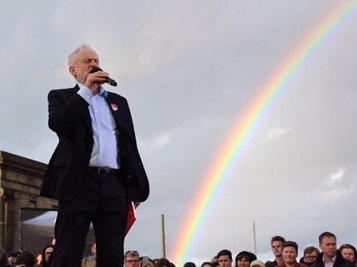The incredible and increasing income disparity between the super-rich and the very poor is becoming unsustainable, writes Dr Adnan Al-Daini.
HOW DOES ONE ASSESS the progress of the human race on our planet?
To do that objectively, let us imagine what an alien would see as she/he observes our development as a species from outer space.
S/he would be impressed by our scientific, technological and medical achievements, but would be very disappointed with our social progress, and the sheer indifference shown by a small rich elite to the plight of billions of fellow citizens worldwide.
Research published by Merrill Lynch, quoted in the Guardian, shows:
‘… the number of wealthy individuals in the world has reached 10.9 million - more than existed before the 2008 banking crises. Their collective wealth, $42.7 trillion (£26.6tn), has also topped the levels it reached in 2007, before the crash and recession.’
This elite group represents 0.15 per cent of a world population of over 7 billion. This is at a time when ordinary people, some of whom are at their poorest and most vulnerable, in the U.S., Europe and beyond, are being told that they must tighten their belts and accept austerity measures that are severely blighting their lives.
A report by the consultancy firm McKinsey & Company, commissioned by the Tax Justice Network, estimates that the super-rich were hiding at least $21 trillion (£12tn) in tax havens by the end of 2010. This is an underestimate and could well be as high as $32 trillion.
Oxfam, working on a smaller figure, ($18.47tn) estimates that
‘… people using tax havens are depriving the world of more than $150 billion (£100bn) in lost revenue, enough money to end extreme poverty twice over.'
Oxfam estimates that
‘… over a third - $7.18 trillion (£4.7tn) - is sitting in accounts in British Overseas Territories and Crown Dependencies.’
A significant part of that colossal sum has been amassed as a result of endemic corruption in the developing world, where assorted dictators, kings, princes and government officials treat their countries as their own private property, plundering its wealth and keeping the population in abject poverty. The other part is a result of a corrupted capitalist system that has been siphoning wealth from the people to the top 1 per cent, with an ever increasing gap between them and the rest. A system of rewards has been allowed to develop where the chief executives of UK’s biggest corporations are earning on average £4.3 million each — 160 times the national average wage, a jump from 45 times in 1998.
The above wealth exists in a world where 870 million people were suffering from chronic undernourishment in 2010-2012, 16 million of whom were in the developed world. Poor nutrition plays a role in at least 5 million deaths of children each year.
Additionally, says Oxfam:
‘… more than 3.4 million people die each year from water, sanitation, and hygiene-related causes.’
You don’t have to be a Marxist to feel a sense of outrage at these statistics.
I trust that most of us would sense that the global economic system that engineers such disparity in the way people live is dysfunctional and requires serious reforms. The love of wealth well beyond that needed for the most luxurious life imaginable is a sickness and neurosis, detrimental to the happiness and health of the individual who possesses it.
Joseph Stiglitz, the Nobel laureate economist, in a piece in Vanity Fair puts the economic argument against the concentration of wealth and power in the hands of the very few thus:
‘The rich do not exist in a vacuum. They need a functioning society around them to sustain their position. Widely unequal societies do not function efficiently and their economies are neither stable nor sustainable. The evidence from history and from around the modern world is unequivocal: there comes a point when inequality spirals into economic dysfunction for the whole society, and when it does, even the rich pay a steep price.’
If you would like to support the efforts of Oxfam in aiding the needy please click here.

This work is licensed under a Creative Commons Attribution-NonCommercial-NoDerivs 3.0 Australia License
Support independent journalism Subscribe to IA.











